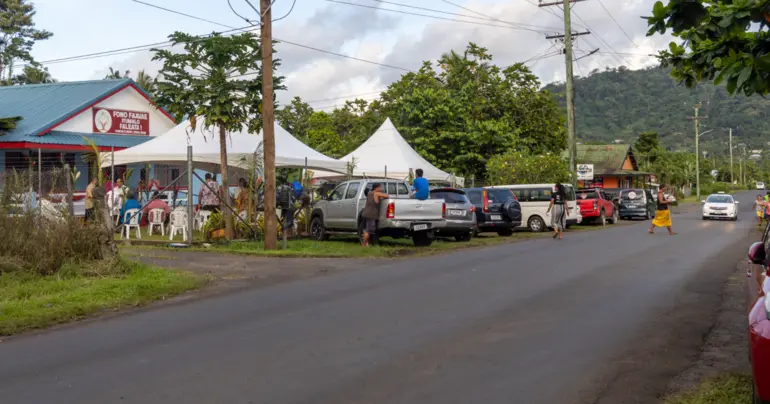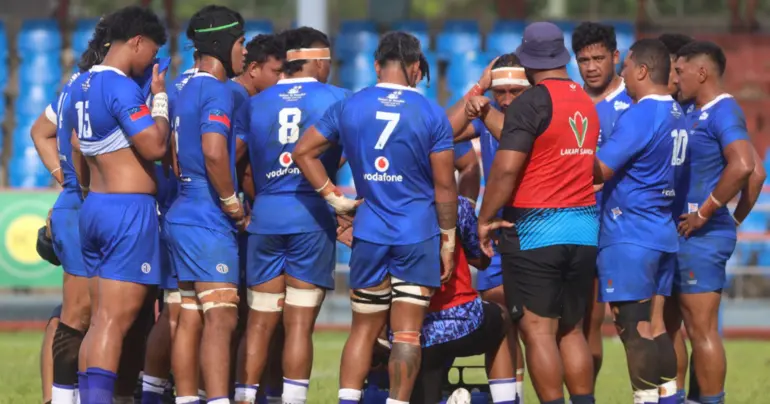You are reckless if you sell or buy undersized fish
Every one to two years there are proceedings in the District Court initiated by the Ministry of Agriculture and Fisheries against members of the public for allegedly selling undersized fish.
In October last year action by the Ministry to weed out illegal undersized fish selling led to the charging of three individuals.
Last week a fish seller who sold undersized lobsters at the Savalalo market was convicted and fined $600 tala by the District Court for the same offence.
An article (Court penalises undersized lobsters’ sale) in the Tuesday 09 August 2022 edition of the Samoa Observer reported that Asenati Suni, who normally sells fish at Savalalo market, vacated her not guilty plea to guilty last Wednesday to one count of displaying for selling three egg-bearing lobsters.
The proceedings against the defendant were brought by the M.A.F. and went before the District Court Judge, Loau Donald Kerslake last week.
Ms. Suni was unrepresented and later decided to change her plea which led to the District Court handing down its sentence. Judge Kerslake convicted and fined the defendant $600 tala to be paid by Friday last week. Failure to pay the fine will result in an eight weeks imprisonment term.
It is disappointing that members of the public, let alone fishmongers, continue to flout the laws of the land despite the efforts of the M.A.F. to raise awareness on the need for sustainable fishing practices.
In fact the awareness programs by the Ministry have been running for a good number of years. The overall objective of the awareness programs is to educate people on the size limits of fish and marine products to look for when out fishing, and those that should be released back into the ocean, due to them being undersized.
The M.A.F. policy that put in place restrictions on the catching and selling of undersized fish is supported by science with the consequences of the lack of enforcement being the depletion of Samoa’s marine resources.
Consistent enforcement of the policy ensures fish are big enough to breed before they are caught, ensuring there are more fish for the community to catch, sell and eat now and into the future.
So why are people continuing to flout the laws despite the availability of scientific information which show that their actions are unsustainable and could have dire consequences in terms of food security?
Well, one factor could be the current penalties that the Court is enforcing for such offences, which might not be considered to be a deterrence.
The fishmonger and defendant Asenati Suni was fined $600 by the District Court last week but that amount could be easily covered by revenue generated from her daily fish sales.
So should the fishmonger have been slapped with a higher court fine by the District Court? Should customers who also buy undersized fish be targeted through legislative changes?
We leave the answer to that question for another time but are of the opinion that the current legislation needs to be reviewed with the penalties cross-checked with the gravity of the offences committed.
We also believe that the catching and selling of undersized fish species continues in other parts of the country and not just at the Savalalo market or the main markets.
You only need to drive on some of the main arterial roads on Upolu and check the roadside fish markets, where you are likely to see fish that would fail the Ministry’s measurement test.
So what are some long-term solutions to eradicate this practice once and for all?
The awareness programs currently being run by the M.A.F. might need to be tweaked, with an emphasis placed on the cost of such reckless behaviour, which can have a dire effect on the welfare of the community.
There is a strong link between the depletion of fish stock and the food security and wellbeing of families living among coastal communities. This link should be the focus of the Ministry’s awareness program, in order to get the public to appreciate the fact that their actions can have a ripple effect beyond their own families.
With Climate Change already impacting thousands of fishing communities around the world by changing ocean currents and warming waters to re-distribute fish stocks, fishing families should follow the law and not make life more difficult for themselves and their families and other island communities.











